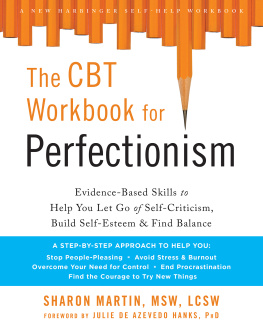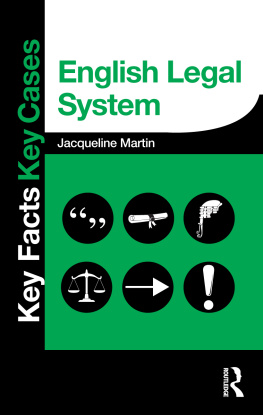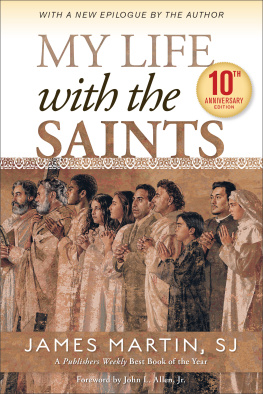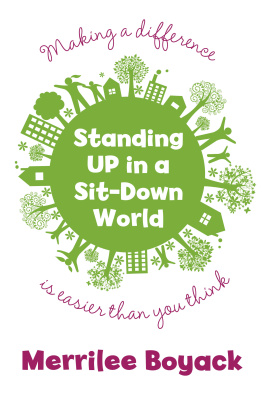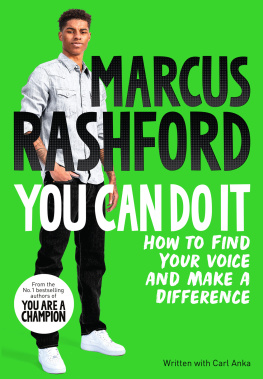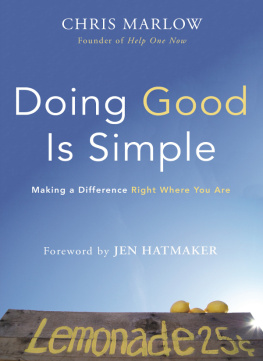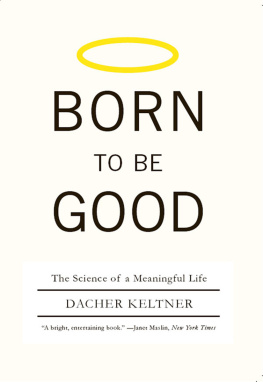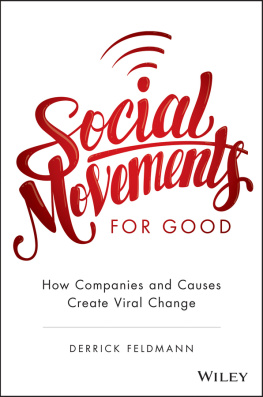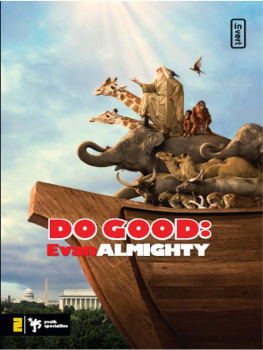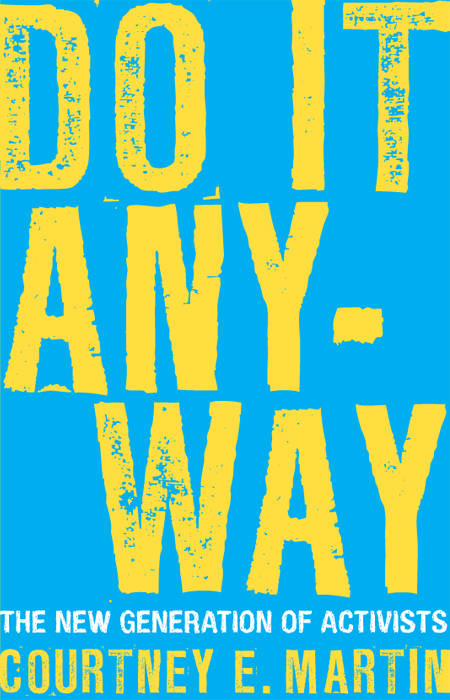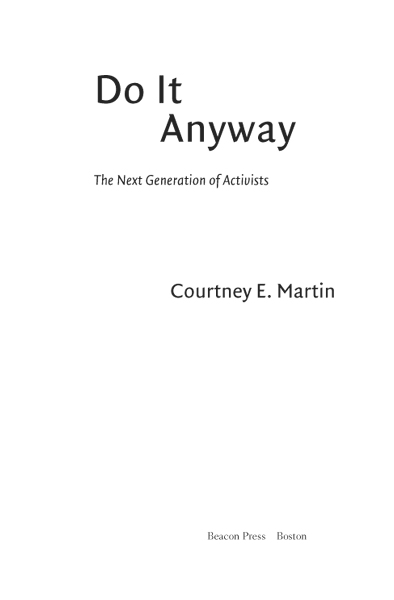Introduction
Save the world.
Where were you the first time you heard those three little words?
Its a phrase that has slipped off the tongues of hippie parents and well-intentioned teachers with a sort of cruel ease for the last three decades. In Evangelical churches and Jewish summer camps, on 3-2-1 Contact and Dora the Explorer, even on MTV, we (Americas youth) have been charged with the vaguest and most ethically dangerous of responsibilities: save the world. But what does it really mean? What has it ever really meantwhen uttered by moms and ministers, by zany aunts and debate coachesto save the whole wildly complex, horrifically hypocritical, overwhelmingly beautiful world?
I for one had no idea, but that didnt stop me from internalizing the message. I swallowed those three little wordsa trio of radioactive seeds. They looked innocent enough when poured into my palm, but when swallowed, they buried themselves deep in my gut and started to grow. South African novelist J. M. Coetzee wrote, All creatures come into the world bringing with them the memory of justice. Shortly thereafter, if all is right, the world breeds in us an outrage over injustice.
At first I engaged my outrage like a true-blue white girl from the suburbs. I sent letters to the managers of Arbys and Wendys in my hometown, begging them to stop using Styrofoam cups in their establishments for the good of our Mother Earth. No response.
I volunteered in an assisted living facility, screaming the letter-number combinations for a comatose game of bingo. Though the residents attempted to adjust their hearing aids, my voice was too high to register. They screamed, What? What did that girl say? to one another, but everyone just shrugged and smiled at me sympathetically.
I worked at the local soup kitchen, dragging wet rags across Formica tables with my eyes diverted straight down, hoping none of the homeless people would actually speak to me. I was frightened by the ones that smelled, but even more frightened by the ones that didnt smell. The ones that looked like me and my mom. The ones that Id seen walking around downtown and never even known I was supposed to save. I couldnt name it yet, but it was the first experience that called the conventional wisdom at the timethat there were savers and those to be saved, and that these were immutable categoriesinto question.
When Sally Struthers commercials came on, featuring little African babies with distended bellies and flies hovering around their eyes, I felt as if I had been punched in the stomach. I took it personally. After all, I had been charged with saving the world, as had my friends and little bike-riding neighbors. The adults in our lives had drawn a line directly between the suffering of the worldthe African babies, the growing hole in the ozone layer, the homeless guy who lay listlessly on the bench outside the libraryand our own nascent sense of purpose.
Once, agitated with one epiphany or another, I decided I would march around my neighborhoodmiddle class, suburban, whiteand ask people for money for the poor. I found an old glass jar in my playhouse, cleaned it fastidiously, and headed into the suburban wilderness for my first experience of fund-raising.
It went pretty well, actually. I was cute at the timefrizzy hair permanently set in a side ponytail, big blue-green eyes with dark, thick eyelashes, and a pair of magenta Converse high-tops (it was the eighties). I think that the smiling neighbors, pried from their daily dose of Oprah, took one look at me, heard my half-formed rationale, and sympathized with the familiar ache in my heart. They dropped quarters, sometimes even dollars, into my jar and sent me on my way.
I rounded the block, growing more and more excited about the efficiency of my tactic. By the time I returned to my playhouse, I had over ten dollars. But as I sat on the wooden planks, my legs splayed, and pushed the coins around with my fingertips, a bad feeling started to creep over me. I realized that I had no idea who the poor really were.
I didnt know if I had met them before. There were kids at my school with less trendy clothes than all the others, but did this really mean they were poor or just that their parents were strict or stingy? There were those little babies with the bloated bellies on the commercial, but would ten dollars really help them? It seemed like they needed much more. I could find some of the homeless guys near the library, but they might spend the money on drugs (by age eight, Id already heard this warning many times). And how would I choose which people to give the money to anyway? Who was the most deserving? How could you predict that theyd use it for good? What if you gave money to someone and they were insultedangry that you assumed they needed it?
The questions washed over me like a tidal wave, and suddenly everything about my initial intentionso pure, so heartfeltwas murky. I piled the money back into the jar and stared at it disapprovingly. There is, perhaps, nothing more paralyzing than a good intention suddenly proven naive. I decided to bury the jar in the shadow of my playhouse until I knew what to do with it. If you go to 1718 North Tejon Street in Colorado Springs, youll find that its still buried there, along with my childhood illusions that saving the world is a simple or pure prospect.
SOCIAL SCIENTISTS AND THE MEDIA seem to have made an ugly habit in the last few years of labeling my generation (defined in this book as those thirty-five years old and under) as entitled, self-absorbed, and apathetic. Psychologist Jean M. Twenge, in Generation Me: Why Todays Young Americans Are More Confident, Assertive, Entitledand More Miserable Than Ever Before


